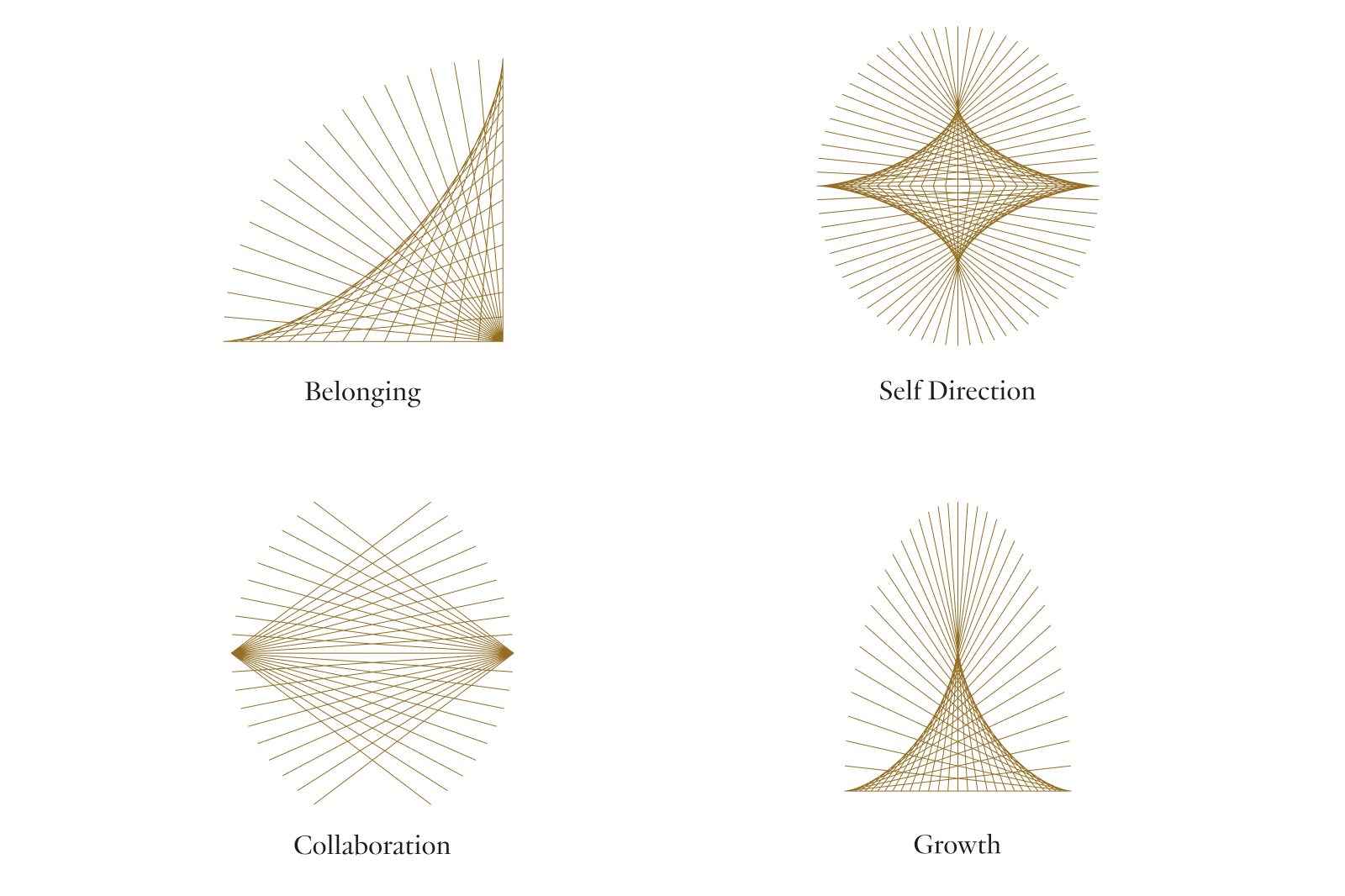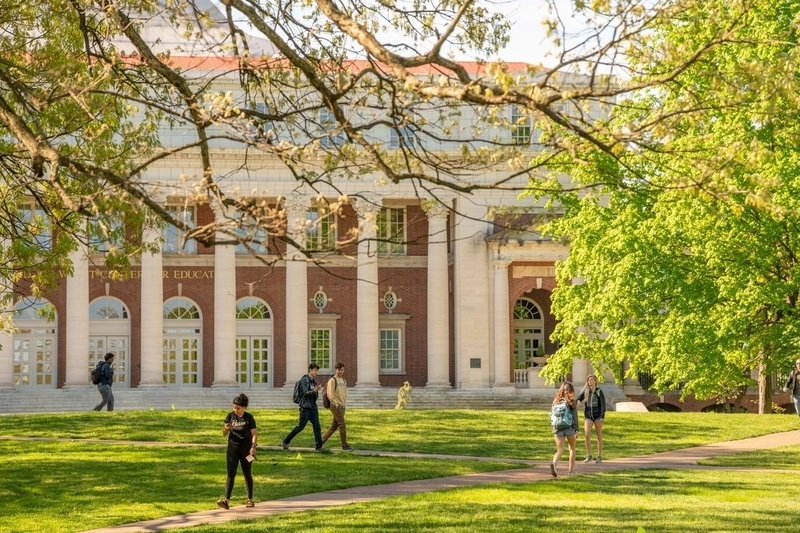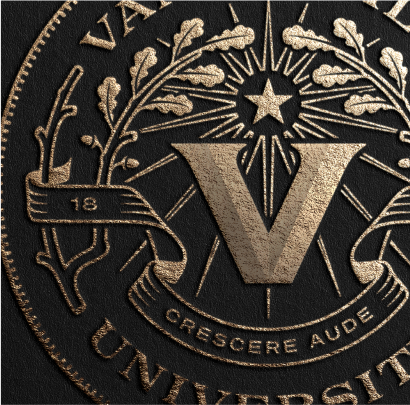Explore the Brand Style Guide
Vanderbilt's Identity
Vanderbilt's brand is more than how we look. It reflects our core beliefs and values—our “why” and our “how”—and should be reflected in all our communications to reinforce Vanderbilt's identity. It guides which stories we tell and how we tell them and is part of everything we say, do and create.
Themes
Our identity comprises four key themes: belonging, self-direction, collaboration and growth.

Belonging
-
Description
Vanderbilt is extremely selective by design. But once you’re here, you will be surrounded by the best and brightest, brought together for one simple purpose: to make each other better.
-
Traits
Confident, never cutthroat. Committed. Pay it forward. Cultivate success. Celebrate differences. Foster unity.
-
Areas
Equity, diversity and inclusion. Residential colleges. Support resources. Selective admissions. Affinity groups.
-
Sample Use
“It all starts with a sense of belonging to our community. We have high expectations of our students, our alumni, our faculty and our staff members. Joining Vanderbilt is not easy, but we proceed knowing that there are Commodores to be found everywhere, from every background and in every part of the world.”

Self-Direction
-
Description
Personal purpose can only be discovered through relentless exploration and challenge. If it’s too comfortable, you’re not doing it right. Once you discover your path, give it everything you have.
-
Traits
Try, fail, learn, repeat. Embrace discomfort. Be ready to change direction. Hard work, no shortcuts. Prove the doubters wrong.
-
Areas
Achievement. Profiles/backstory. Challenging status quo. Breakthroughs/one-of-a-kind.
-
Sample Use
“Senior student-athlete Sarah Fuller became the first woman to play in a football game in the Southeastern Conference and for a Power Five program when she kicked off at the start of the second half against the University of Missouri on Nov. 28."

Collaboration
-
Description
By challenging and supporting one another, high-functioning teams accomplish far more than individuals. With diverse talents focused on a common purpose, we multiply our individual potential.
-
Traits
Bands are better than soloists. Set egos aside. Pioneer together. Challenge the problem, not the solution. Redefine what's possible.
-
Areas
Mentor relationships. Partnerships (within and outside VU). Interdisciplinary work. Family support.
-
Sample Use
"The Moderna COVID-19 vaccine and a similar vaccine developed by Pfizer, as well as an antibody treatment developed by AstraZeneca and the antiviral drug remdesivir, all have their roots in research conducted by Dr. Barney Graham, PhD’91, and others at Vanderbilt in the 1990s, when no one spared much money—or thought—for coronaviruses. In the ensuing decades, the passion of many of those researchers came together to create treatments for the COVID-19 pandemic in record time."

Growth
-
Description
A permanent growth mindset is more important than any single achievement. Human potential is realized over a lifetime, in increments and leaps, and it expands as you grow.
-
Traits
Developing the whole person. Constant self-improvement. Compete against yourself. Be a ladder for others. Always seek to raise the bar.
-
Areas
Overcoming challenges. New directions. Shifts in perspective/outlook. Going to the next level.
-
Sample Use
"The possibility of returning to Nashville—and helping further the progress in diversity efforts he saw unfolding at Vanderbilt—was never far from Dr. André Churchwell’s mind. He eventually would join the leadership at VUMC and today is leading the university’s efforts to build a culture that ensures all students, faculty and staff feel welcomed, supported and part of the broader Vanderbilt community.”
Our Narrative
Vanderbilt University’s identity is deeply rooted in its founding in 1873, shortly after the end of the Civil War and the abolishment in the U.S. of human enslavement. A Methodist bishop secured the original $1 million gift from New York industrialist Cornelius “Commodore” Vanderbilt, and his wife, to establish a university in the South dedicated to the highest ideals of scholarship and education that would help unite a divided nation. Originally modeled on schools in the Ivy League, Vanderbilt has developed a culture uniquely its own. It is home to 10 distinct schools and colleges, nestled on a 340-acre, tree-filled campus in the heart of thriving Nashville, Tennessee. Today, it is a globally renowned institution that stands out as much for its advances in biomedical engineering as it does for its NCAA-championship baseball team.


Our Motto
Crescere aude, Latin for “dare to grow,” embodying the sentiment expressed in a section of Vanderbilt’s alma mater, “Forward ever be thy watchword …”
Tone
Our tone is our attitude when we communicate.
Radical Collaboration
Our greatest strength is a willingness to draw on our unique talents to support one another and the wider enterprise of the university. This idea of "radical collaboration"—being as committed to the success of our Vanderbilt community as to your own lifelong growth—offers a powerful foundation for the unique culture that infuses every aspect of our university. We know that when we put in the work together, we’ll never stop growing and achieving. Our ethos of radical collaboration should be reflected and celebrated in our communications as much as possible.
Our “radical collaboration” mindset infuses every aspect of university life—our campus, classrooms, playing fields, stages, studios and labs—cutting across disciplinary boundaries with a unified sense of purpose.
City and Region
Nashville and the surrounding region have been integral to Vanderbilt since its founding. For nearly its entire history, the university has served as a source of talent, culture and resources for the city. Vanderbilt, in turn, has benefited from Nashville’s global reputation as an important creative and economic hub. Now, as both Nashville and Vanderbilt chart out ambitious plans for the future, there has been a renewed mutual commitment to support and strengthen one another as much as possible. Communications about our hometown should highlight our shared growth and dynamic culture and our shared momentum.
Our Audiences
Editorial Style Guide
The Vanderbilt editorial style guide is a resource specifically for Vanderbilt communicators that addresses issues of style and grammar that are likely to be encountered while producing communications for the university, as well as preferred ways for referring to our programs, places and people.
The guidelines are based, in part, on The Associated Press Stylebook; however, the guide expands on its sources to create a reference specific to Vanderbilt. Please use this editorial style guide as the primary resource for questions of style in Vanderbilt communications. Above all, always aim for consistency, clarity and accuracy.